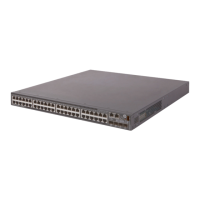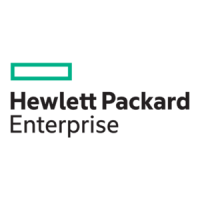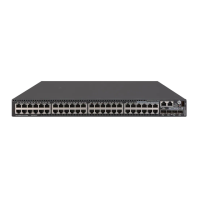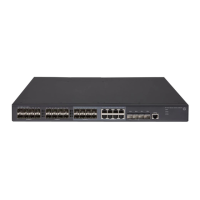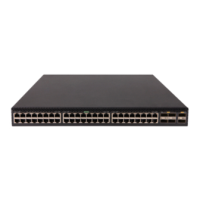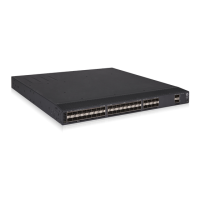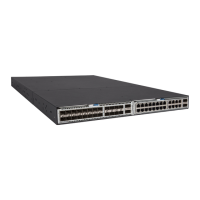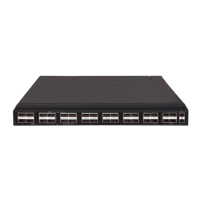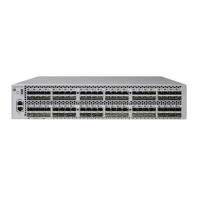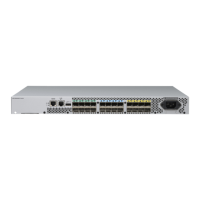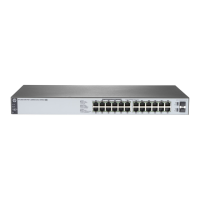2
OpenFlow supports the following types of ports:
• Physical port—Corresponds to a hardware interface of a switch, such as an Ethernet interface.
A physical port can be either an ingress port or an output port.
• Logical port—Does not correspond to a hardware interface of a switch and might be defined
by non-OpenFlow methods, such as an aggregate interface. A logical port can be either an
ingress port or an output port.
• Reserved port—Defined by OpenFlow to specify forwarding actions. Reserved ports include
the following types:
{ All—All OpenFlow ports that can be used to forward a packet.
{ Controller—OpenFlow controller.
{ Local—Local CPU.
{ Normal—Normal forwarding process.
{ Flood—Flooding.
Except the Any type, all reserved ports can be used only as output ports. Only ports of
Controller and Local types can be used as input ports.
OpenFlow instance
You can configure one or more OpenFlow instances on the same device. A controller considers each
OpenFlow instance as a separate OpenFlow switch and deploys forwarding instructions to it.
In this chapter, an OpenFlow switch is the same as an OpenFlow instance, unless otherwise
specified.
Associated VLAN
When an OpenFlow instance is associated with VLANs, the flow tables take effect on packets only
within those VLANs.
Activation and reactivation
The configurations for an OpenFlow instance take effect only after the OpenFlow instance is
activated.
The controller can deploy flow entries to an OpenFlow instance only after the OpenFlow instance
reports the following information to the controller:
• Capabilities supported by OpenFlow.
• Ports that belong to the OpenFlow instance.
An activated OpenFlow instance need be reactivated when any of the OpenFlow instance
configurations is changed.
After reactivation, the OpenFlow instance is disconnected from all controllers and then reconnected
to them.
OpenFlow instance port
An OpenFlow instance sends information about following ports to the controller:
• Physical ports.
• Logical ports.
• Reserved ports of the Local type.
In loosen mode, a port belongs to the OpenFlow instance when VLANs associated with the
OpenFlow instance overlap with the port's allowed VLANs. Otherwise, a port belongs to an
OpenFlow instance only when VLANs associated with the OpenFlow instance are within the port's
allowed VLAN list.
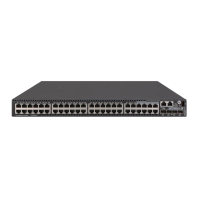
